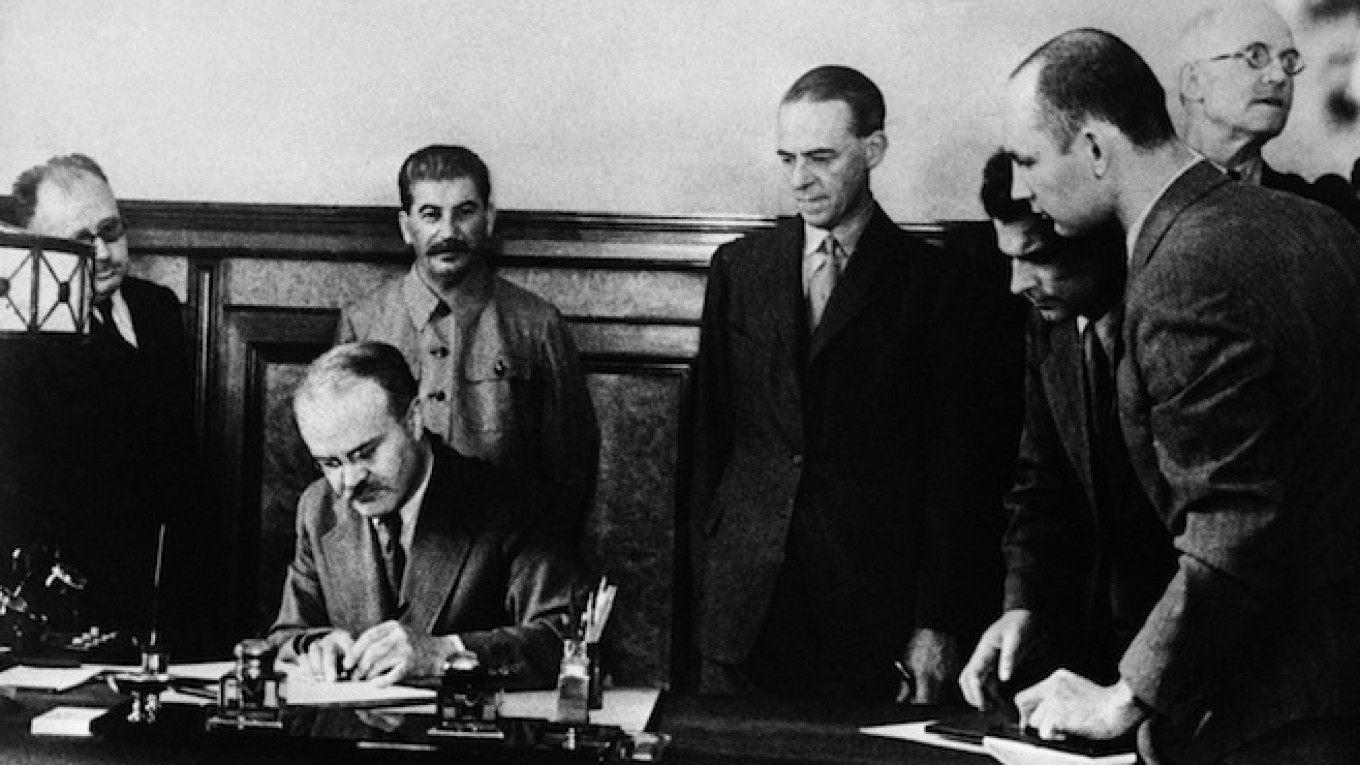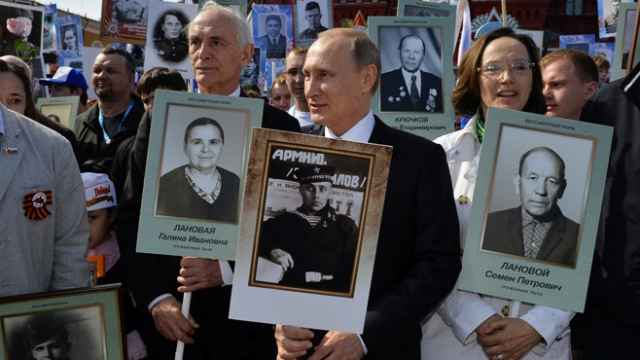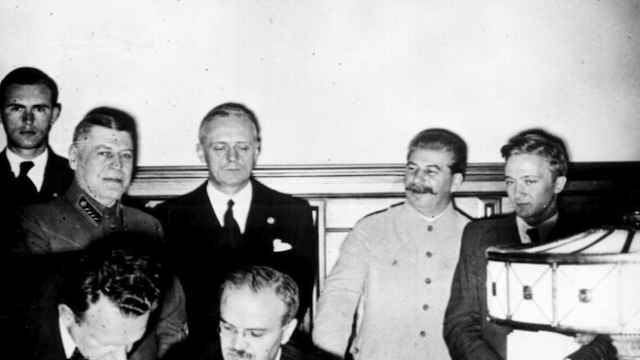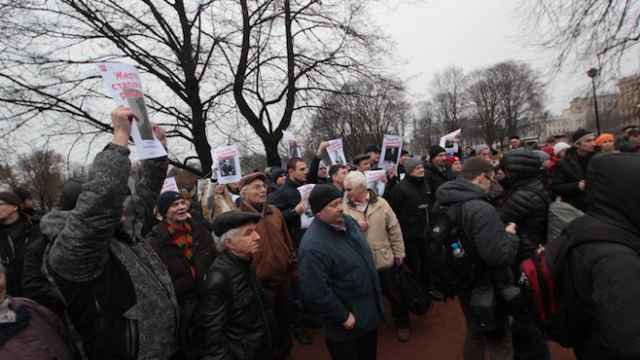The grandson of Vyacheslav Molotov — Stalin's protege and signatory on the 1939 pact with Nazi Germany — joined the "Immortal Regiment" procession in Russia's Nizhny Novgorod on Monday, carrying his grandfather's portrait, according to a post on his Facebook page.
Molotov's grandson Vyacheslav Nikonov is head of the Russian State Duma committee on education.
Molotov served as foreign minister of the Soviet Union from 1939 to 1949 and signed a non-aggression pact with Nazi Germany, known as the Molotov-Ribbentrop pact, which called for the carving up Europe.
The agreement held until June 1941, when Hitler's army attacked the Soviet Union after occupying France. Molotov died more than 40 years later in 1986 in Moscow and is buried in the capital's prestigious Novodevichy cemetery. He was 96 years old.
Three years after his death, Mikhail Gorbachev's government formally denounced the Molotov-Ribbentrop pact, as well the annexation of the Baltic States and the partition of Poland.
Moscow's defensiveness about the Soviet Union's pact with the Nazis has increased sharply after Russia annexed the Crimean Peninsula in 2014.
Russian President Vladimir Putin, who in 2009 denounced the Molotov-Ribbentrop pact as "unacceptable from the moral point of view," "harmful" and "dangerous," in May 2015 defended it as Moscow's response to being isolated by the West.
Molotov's grandson Nikonov wrote in 2014 that it was a "a branch of the Aryan tribe from the Carpathian mountains," that had inhabited Russia and ultimately destroyed Nazism, the Moskovsky Komsomolets news portal reported at the time.
The procession in Nizhny Novgorod and other Russian cities was to commemorate those killed while the Soviet Union fought Nazi Germany in World War II. Over half a million people attended the event in Moscow, state news agency Interfax reported Monday.
A Message from The Moscow Times:
Dear readers,
We are facing unprecedented challenges. Russia's Prosecutor General's Office has designated The Moscow Times as an "undesirable" organization, criminalizing our work and putting our staff at risk of prosecution. This follows our earlier unjust labeling as a "foreign agent."
These actions are direct attempts to silence independent journalism in Russia. The authorities claim our work "discredits the decisions of the Russian leadership." We see things differently: we strive to provide accurate, unbiased reporting on Russia.
We, the journalists of The Moscow Times, refuse to be silenced. But to continue our work, we need your help.
Your support, no matter how small, makes a world of difference. If you can, please support us monthly starting from just $2. It's quick to set up, and every contribution makes a significant impact.
By supporting The Moscow Times, you're defending open, independent journalism in the face of repression. Thank you for standing with us.
Remind me later.






